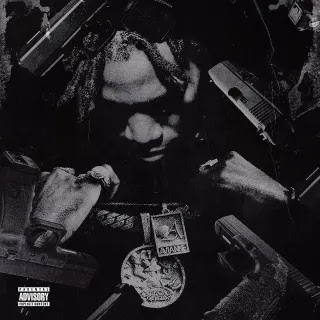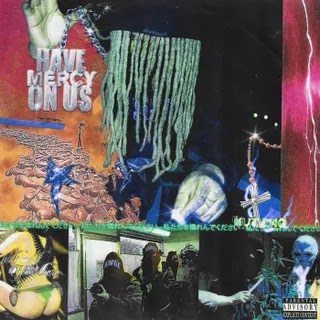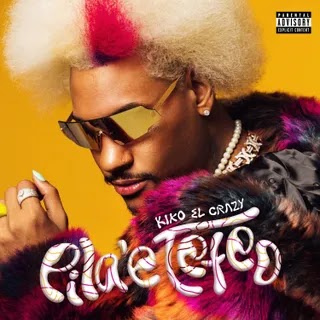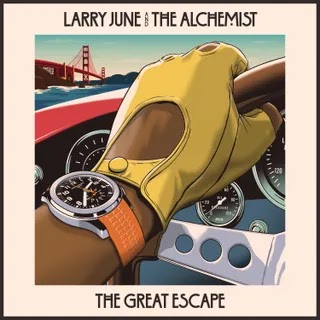The South Florida rapper internalizes his skeptical gaze, yielding music that’s more deliberately self-reflective, with few ragers or bangers.
Denzel Curry likes to power up. His delivery—half war cry, half panic attack—tends to intensify over the course of a verse, his flows gaining speed, his voice hardening like a hand becoming a fist. That aggressive style, and the frenetic, bass-boosted beats that accompanied it, helped define the South Florida scene that birthed SoundCloud rap, but Curry’s most memorable music often departs from that template. Building on 2018’s melancholic TA13OO, *ZUU—his rich 2019 ode to multiple generations of South Florida rap—showcased his knack for melody, storytelling, and the underappreciated art of rapping slow, which requires finesse and presence rather than sheer intensity.
On Melt My Eyez See Your Future, Curry again retools his sound, trading livewire energy for introspection and vulnerability. The album lacks the vividness of his past releases, but its concept offers a glimpse into Curry’s roving mind. In interviews, he’s described the project as more intimate, saying “this album is about me, Denzel Curry. No alter egos, no nothing. Just Denzel Curry.” The comment overstates the distinctness of his personas, none of which were fully formed identities, but it illustrates his approach to writing. Throughout Melt My Eyez, he focuses on himself, internalizing the skeptical gaze he usually applies to larger political issues. That pivot yields music that’s more self-reflective, with few ragers or bangers.
Curry presents the world behind his eyes as a hushed, penitent space. The beats are largely soft and uncluttered, full of neat drums, gossamer piano, and spectral vocals. Instead of sprinting through these mellow instrumentals, Curry ambles, his words measured and deliberate. The first verse of “Walkin,” a highlight, unfurls like a house cat in sunlight as Curry floats over a yawning vocal sample. “Walking with my back to the sun/Keep my head to the sky/Me against the world/It’s me, myself and I/Like De La,” Curry raps in a loose, lolling cadence. When the Kal Banx beat flips into a trap number midway, Curry slips into his signature double-time—but he trots rather than gallops. Even when he’s animated, he’s unrushed and loose.
Forward momentum and acceptance are constant themes. “Watching people dying got me being honest,” he says on “The Last,” one of many moments of pandemic-induced lucidity. “It’s all in mind/But I’mma feel fine once I’m melting my eyes,” he chants on “Mental,” singer Bridget Perez’s sweet coos reassuring him. Curry invokes that image a few times, casting it as clarifying in all senses of the word: warm, liquefying, cleansing. The metaphor cleverly flips crying—a messy, mucusy, and literally blurring physiological reflex—into an orienting experience.
But Curry never fully realizes the conceit. Despite the album’s emphasis on candor and self-examination, many of Curry’s takeaways are vague and distant. “Bullshit” is a frequent descriptor, appearing in two choruses (“Worst Comes to Worst” and “Angelz”), and the album is short on storytelling and melody, the pillars of his best work. “Troubles,” a bubbly but empty collaboration with T-Pain, is all cliché. “Got some troubles that these drugs can’t fix/We might struggle because life’s a bitch,” Curry sings. The writing on the otherwise thrilling drum ‘n’ bass track “Zatoichi” is just as lazy. “Life is short/Like a dwarf,” slowthai and Curry declare on the chorus. Sure, dudes. These elisions might be more engaging if they were clearly intentional. When Kendrick bleeps out names in his songs or Vince Staples raps like the booth is wiretapped, the omissions underscore the gravity of the information being withheld. Curry’s glosses don’t feel as loaded.
The best moments on Melt My Eyez embrace free association. “The Smell of Death” is pure flow, Curry bouncing rhymes off a misty Thundercat beat. On “X-Wing,” the album’s best track, Curry swings between urgent thoughts about the life expectancy of rappers, references to professional wrestling and Star Wars, and slick wordplay. “Am I killing it or am I losing it?” he asks amid the stream-of-consciousness. The question, and the song, show a mind intent on processing the world rather than escaping it.
















0 comments:
Post a Comment